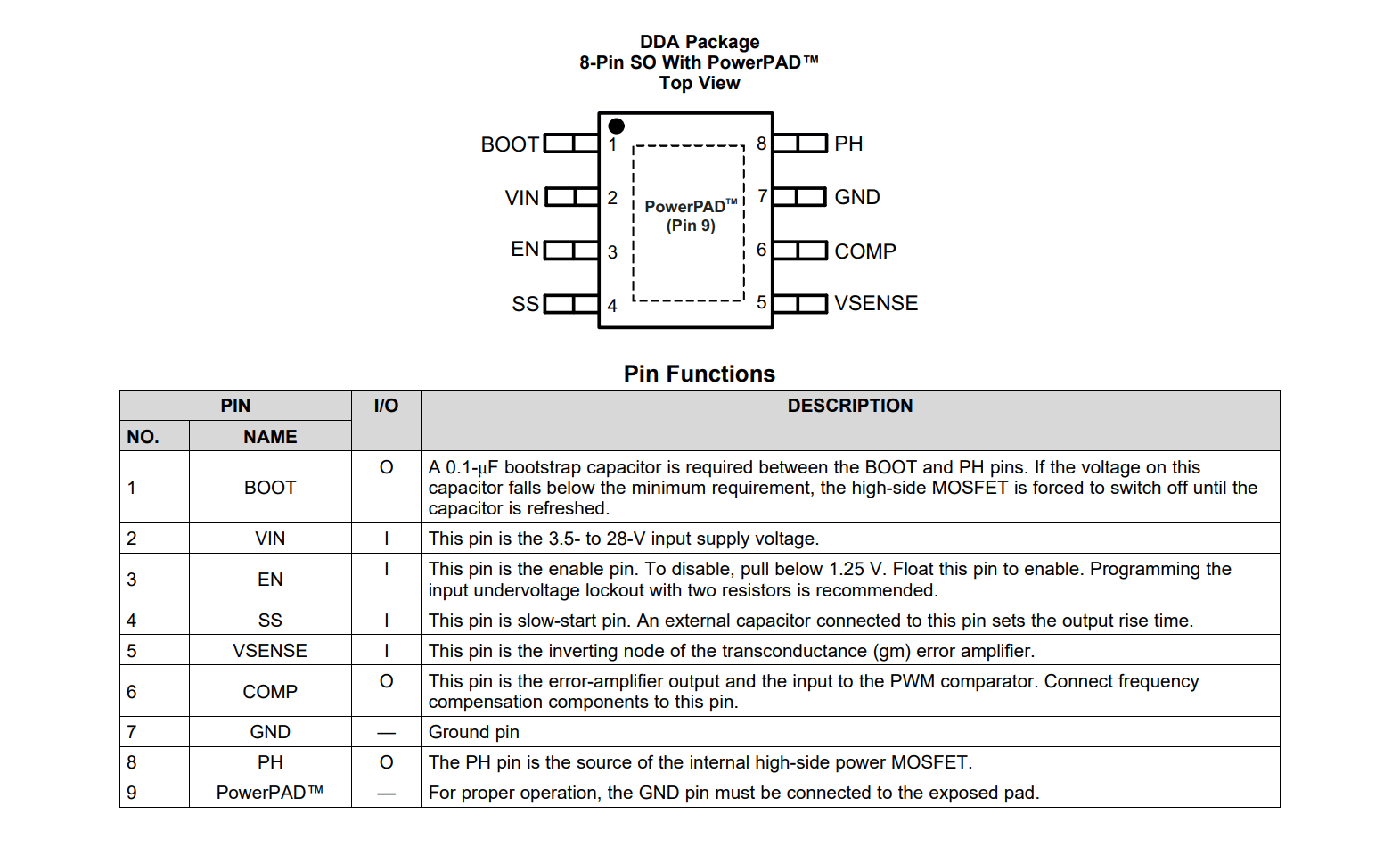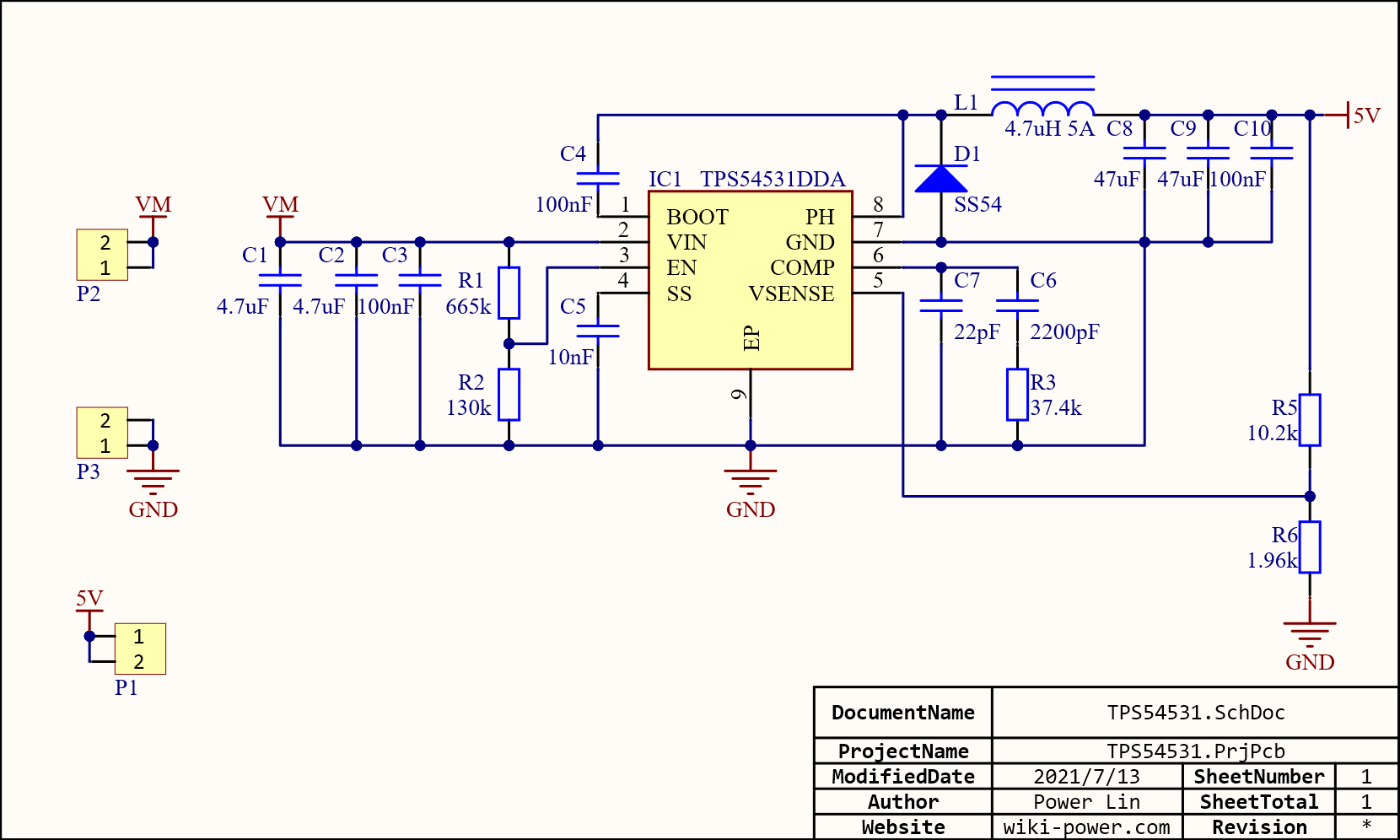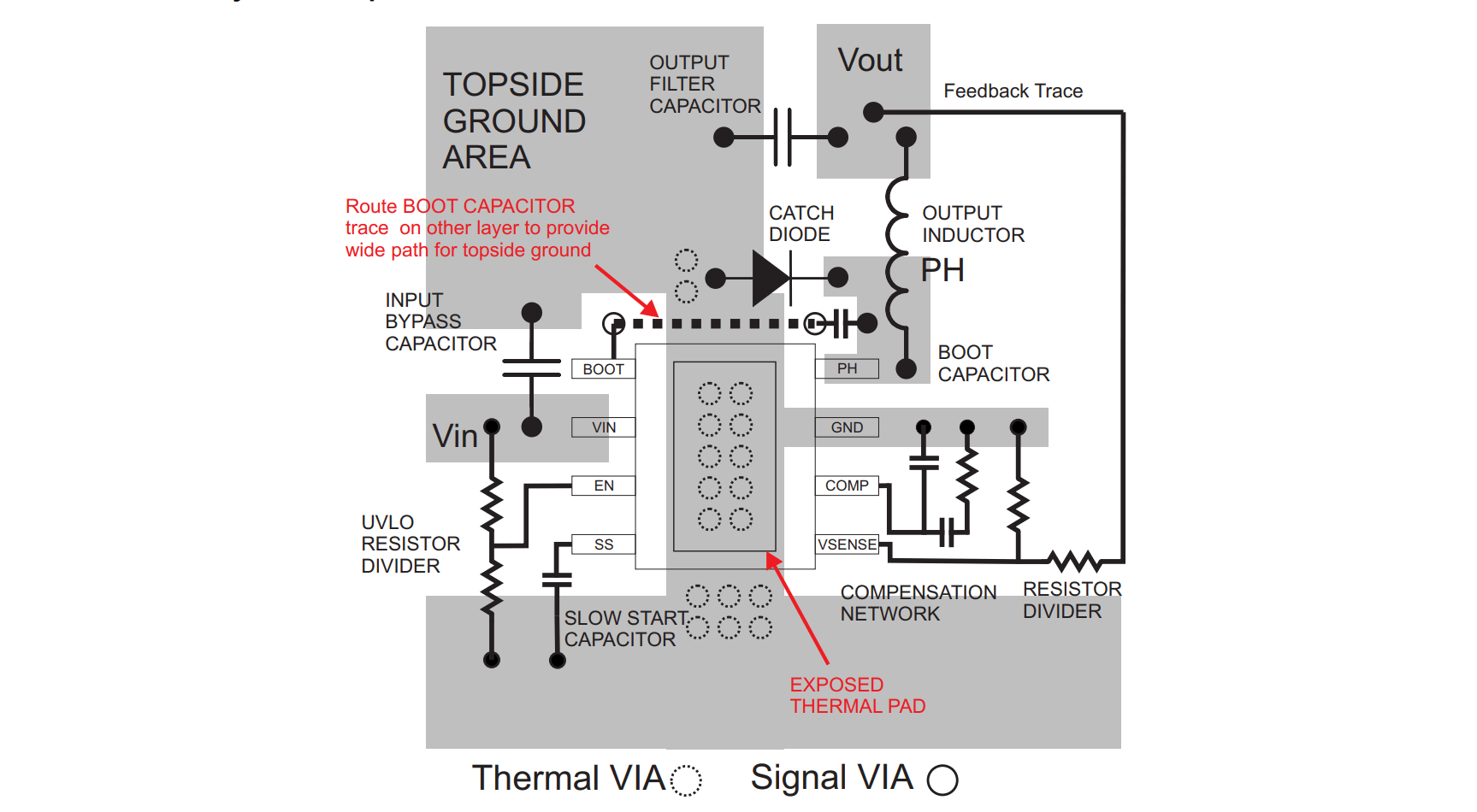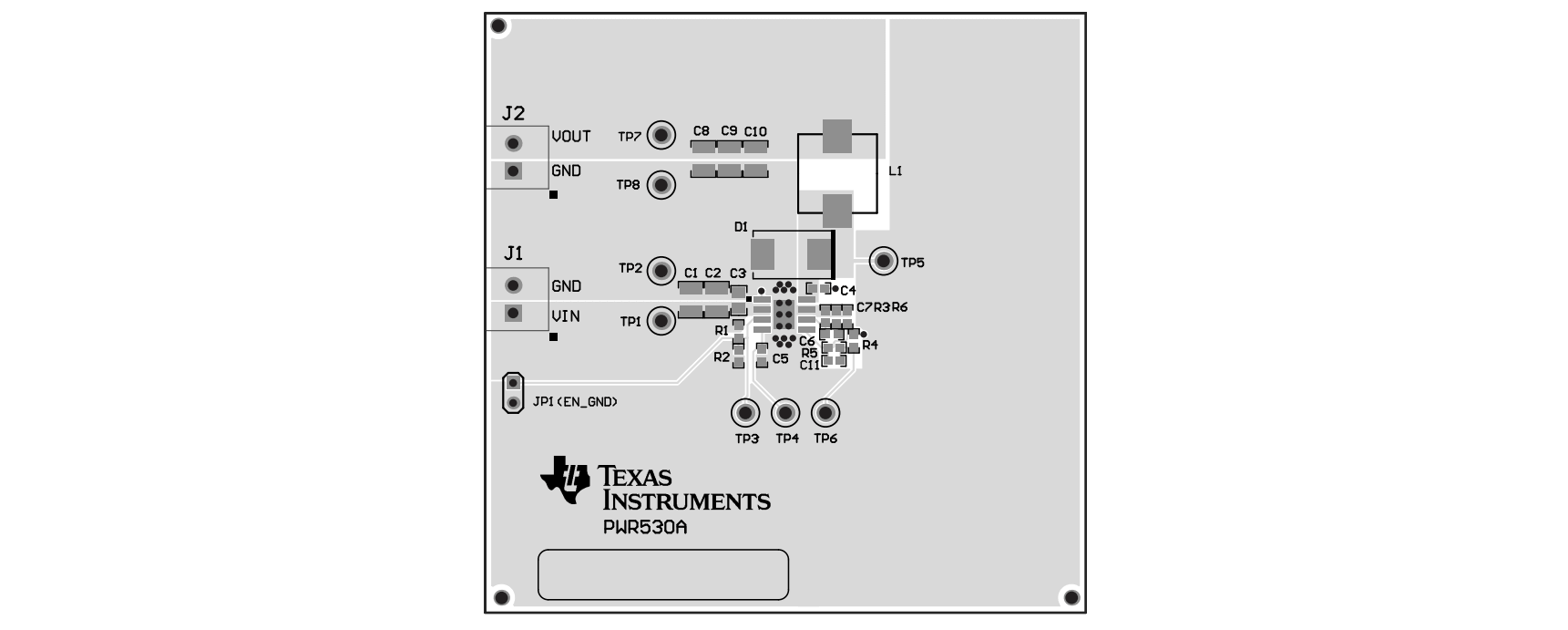Power Solution (Buck) - TPS54531
The TPS54531 is a 3.5V to 28V input, 5A, 570kHz Buck converter with Eco-mode from TI.
Project Repository: Collection_of_Power_Module_Design/DC-DC(Buck)/TPS54531
Project Online Preview:
Key Features
- Topology: DC/DC (Buck)
- Input Voltage: 3.5-28 V
- Output Voltage: Minimum 0.8 V
- Output Current: 5 A
- Switching Frequency: 570 kHz
- Efficiency: Up to 92%
- Price: ¥3.80
- Features:
- Eco-mode function with pulse skipping at light loads
- Adjustable soft-start to limit inrush current
- Programmable undervoltage lockout (UVLO) threshold
- Overvoltage transient protection
- Cycle-by-cycle current limit, frequency foldback, and thermal shutdown protection
Pin Definitions

Reference Design

Parameter Adjustment
(For more detailed parameters, please refer to the datasheet)
Output Voltage Adjustment
The output voltage can be set by adjusting the feedback voltage divider resistors \(R_5\) and \(R_6\) (with reference voltage \(V_{REF}=0.8 V\)):
\(R_5\) is approximately 10 kΩ. In the reference design, we need an output of 4.96 V, so we take \(R_5\) = 10.2 kΩ and \(R_6\) = 1.96 kΩ.
Enable Pin
The EN pin is disabled when it is below 1.25 V and floating to enable. Here, two resistors are used for undervoltage lockout.
Eco-mode Power Saving Mode
When the peak current of the inductor is below 160 mA, the chip enters the power-saving mode and shuts off the output.
Thermal Shutdown
When the chip temperature exceeds 165℃, the chip stops operating. It restarts when the temperature is below 165℃.
PCB Layout Reference


Pitfall Summary
- The current of the freewheeling diode and inductor should be greater than the output current.
- The backside of the chip should have bare copper with tin plating for heat dissipation.
- The layout should follow the current flow of the Buck converter.
- The finished board can output a current of 5 A, but additional heat dissipation is required for continuous operation above 3 A. Power devices such as diodes and inductors may become hot.
Original: https://wiki-power.com/
This post is protected by CC BY-NC-SA 4.0 agreement, should be reproduced with attribution.This post is translated using ChatGPT, please feedback if any omissions.